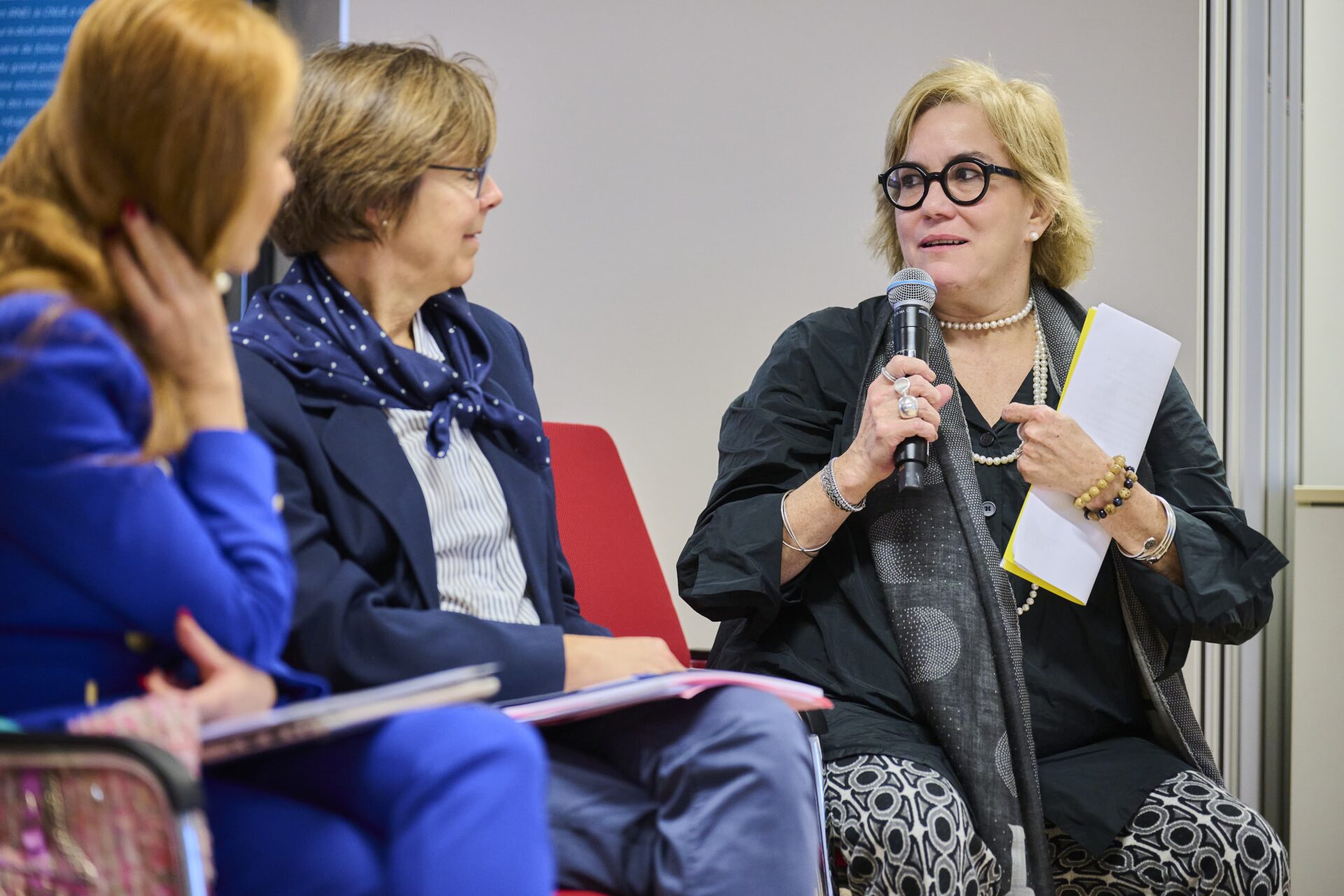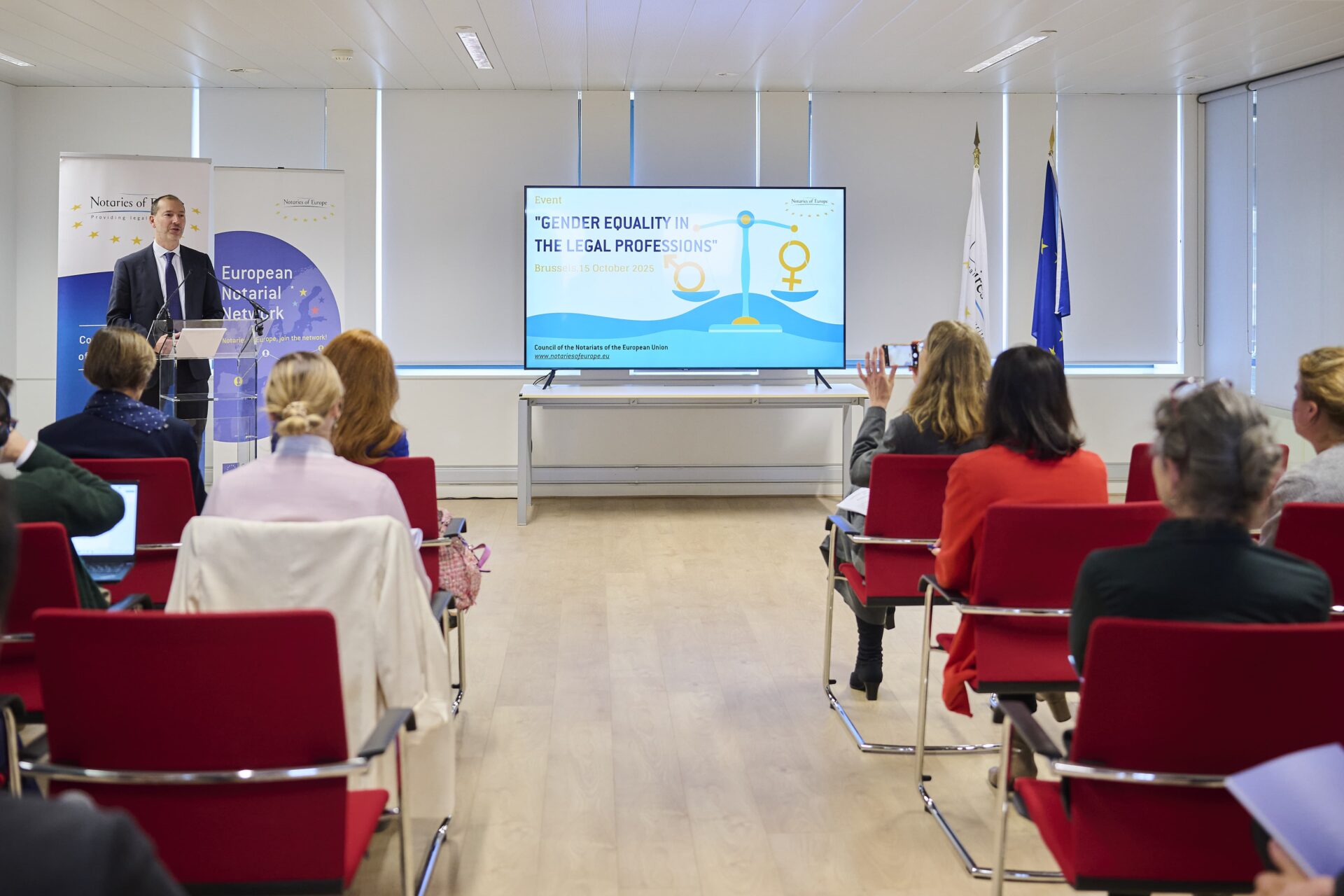News CNUE, 16 October 2025
Gender Equality in the Legal Professions: The CNUE Brings Together European Partners in Brussels
–
On 15 October 2025, the Council of the Notariats of the European Union (CNUE) organised a conference in Brussels dedicated to gender equality in the legal professions, bringing together speakers of the notariat as well as European and international institutions. The day began with a working meeting between the Secretariat of the CEPEJ (European Commission for the Efficiency of Justice of the Council of Europe) and the dedicated CNUE Task Force, chaired by Dutch notary Geertjan Sarneel. This meeting enabled both organisations to identify new avenues for cooperation, particularly in the areas of data collection and sharing of best practices.
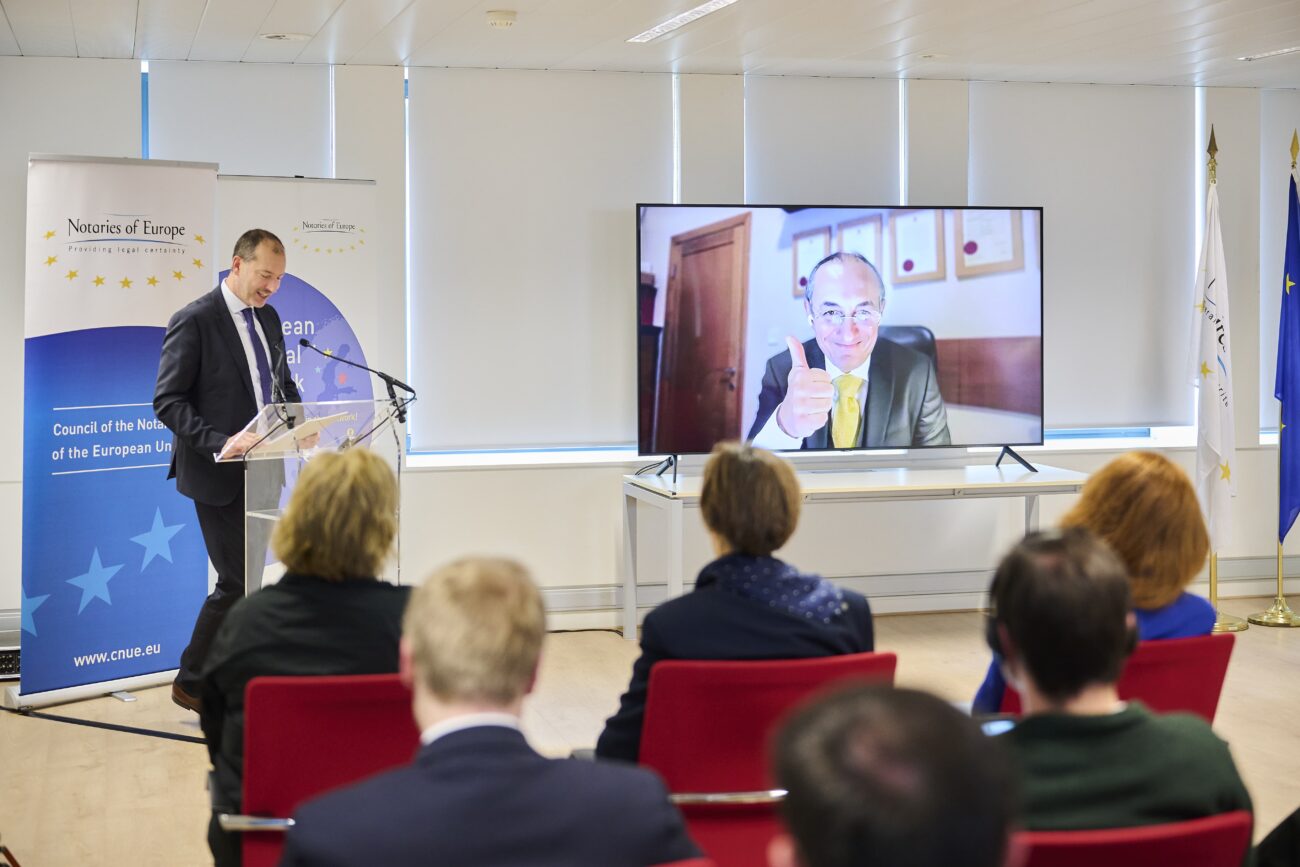
In the afternoon, the conference opened with a shared observation: gender equality is not a secondary issue, but a central challenge for the notarial profession and the legal sector as a whole.
As Valentina Rubertelli, President of the European Affairs Commission of the UINL, emphasised, quoting Mario Draghi: “Equality cannot be imposed by decree, but it is possible to create the conditions for it to happen.”
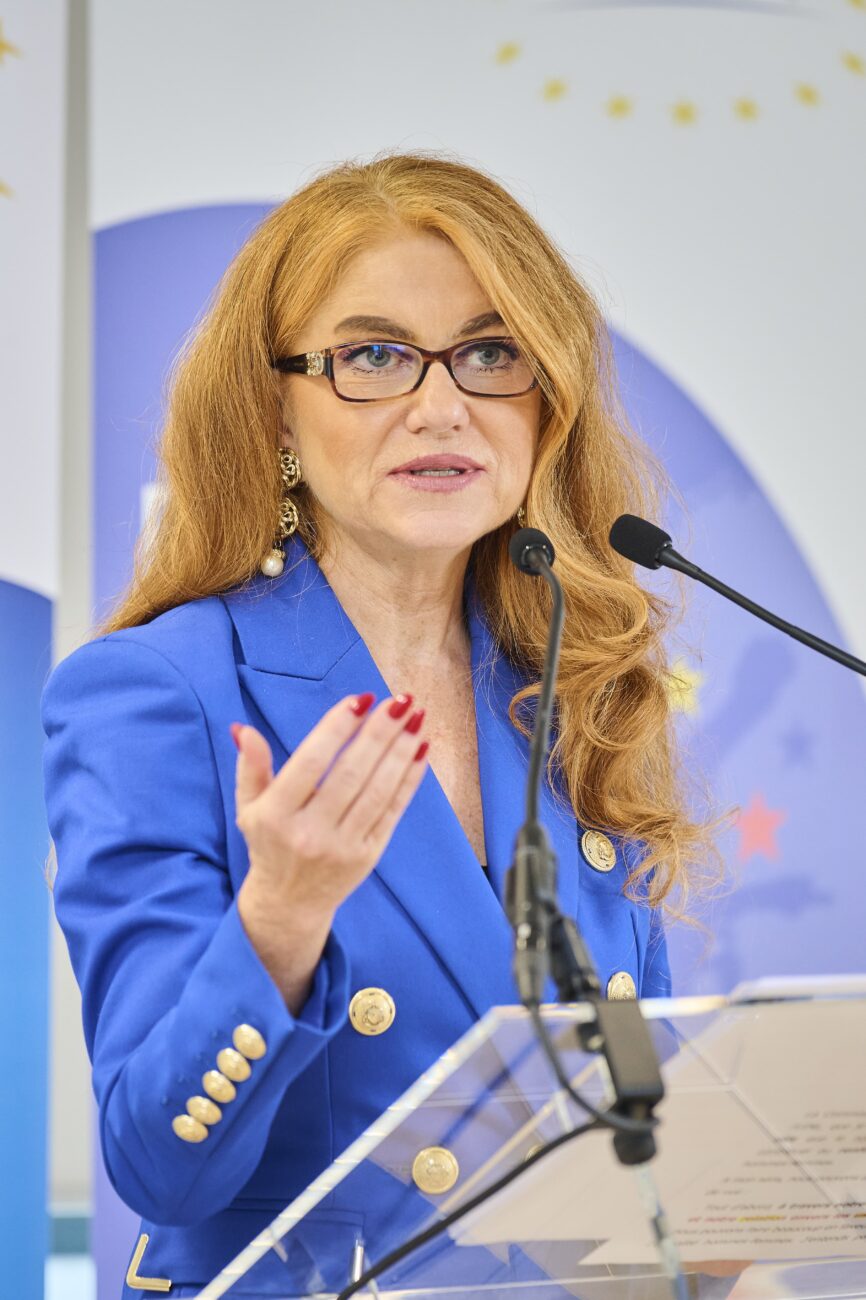
Highlights of the Interventions
As CNUE President Cosita Delvaux reminded the audience, gender equality lies at the heart of the notariat’s public service mission. She highlighted the responsibility of notaries to support their clients at key moments in life, ensuring fairness and actively combating bias. “Gender equality is not a peripheral issue for our profession; it must be reflected in our practices and our institutions,” she affirmed to the assembly.
Francesco Depasquale, President of the CEPEJ, presented the latest European statistics on the position of women in legal professions: while feminisation is progressing (with more than 50% of notaries being women in many countries), access to leadership positions remains limited. He detailed the guidelines adopted by the CEPEJ in 2022 to ensure transparent recruitment and promotion procedures, encourage mentoring and leadership training, and promote the collection of gender-disaggregated data. He stressed the need to transform numerical equality into real equality within governance bodies.
Karen Vandekerckhove, Deputy Director for Equality and Non-Discrimination at DG Justice of the European Commission, outlined the European Strategy for gender equality, based on combating violence against women, reducing pay and pension gaps, promoting work-life balance, and increasing women’s representation in governance. She presented the roadmap adopted in March 2025, which sets priorities for the coming years, and reminded participants that gender equality is both a fundamental value and a legal obligation for the European Union. The next European Commission Strategy for the period 2026–2030 will be adopted on 8 March 2026, to mark International Women’s Day.
Valentina Rubertelli reported on the scientific work carried out by the UINL on this subject and illustrated the concrete role of notaries in promoting equality: providing personalised advice to couples on choosing an appropriate matrimonial regime, preventing economic violence, supporting women entrepreneurs, and ensuring the application of equality principles in successions and family life. She also highlighted the importance of listening, empathy, and mediation in client relations, and the need to continue efforts to achieve parity in leadership bodies.
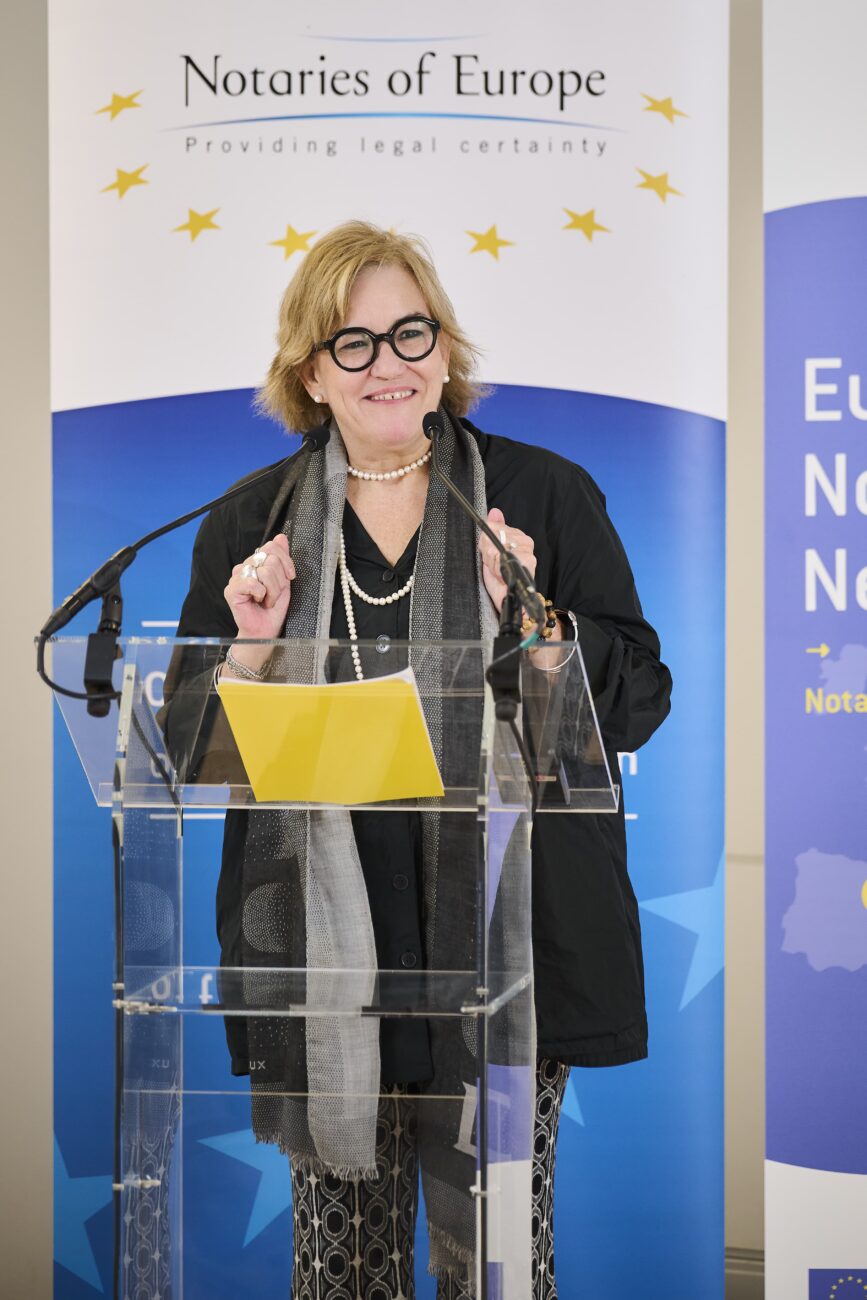
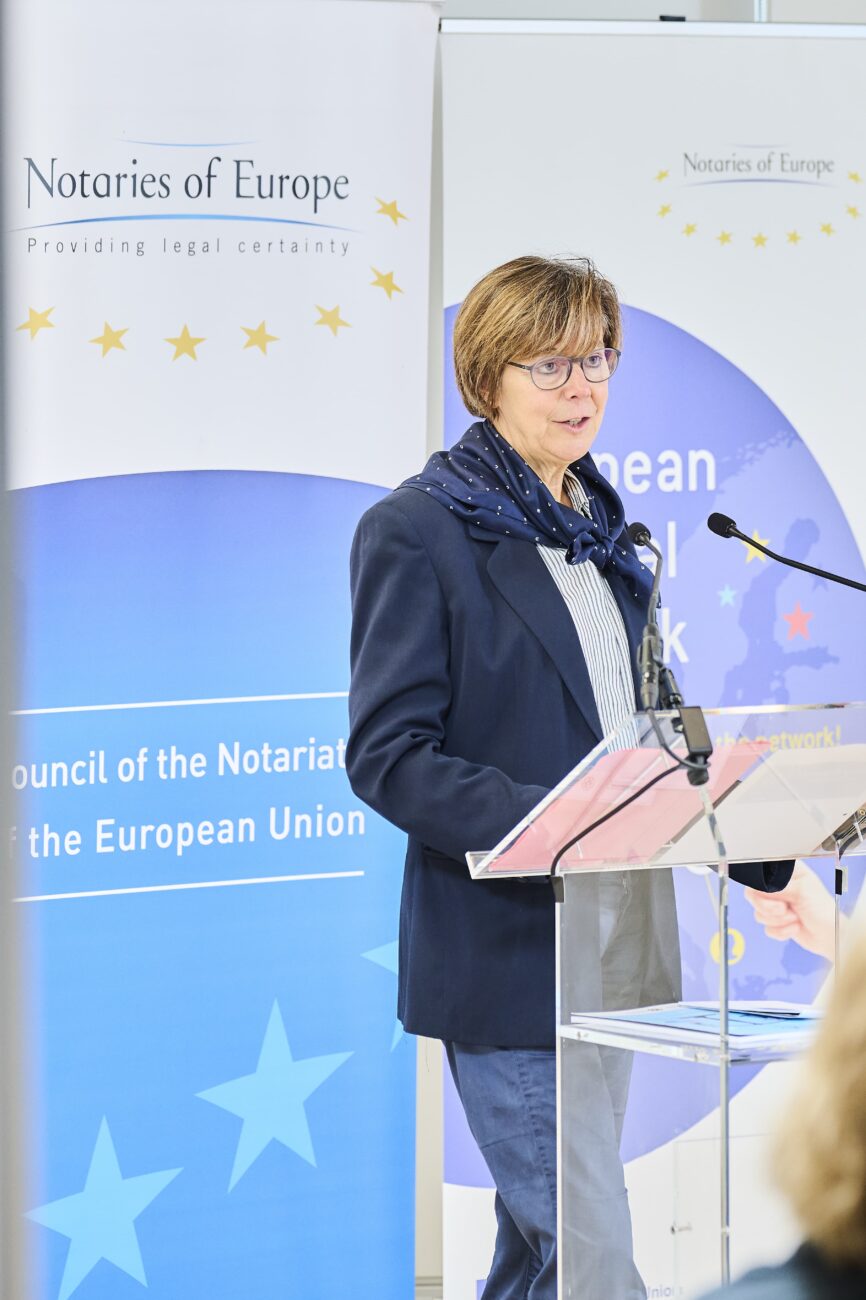
A Collective Commitment for the Future
The CNUE thus reaffirms its determination to be a driving force for a more inclusive, innovative, and representative profession within the European society. The lively exchanges between participants and speakers demonstrated that collective mobilisation is essential to turn principles into tangible change.
